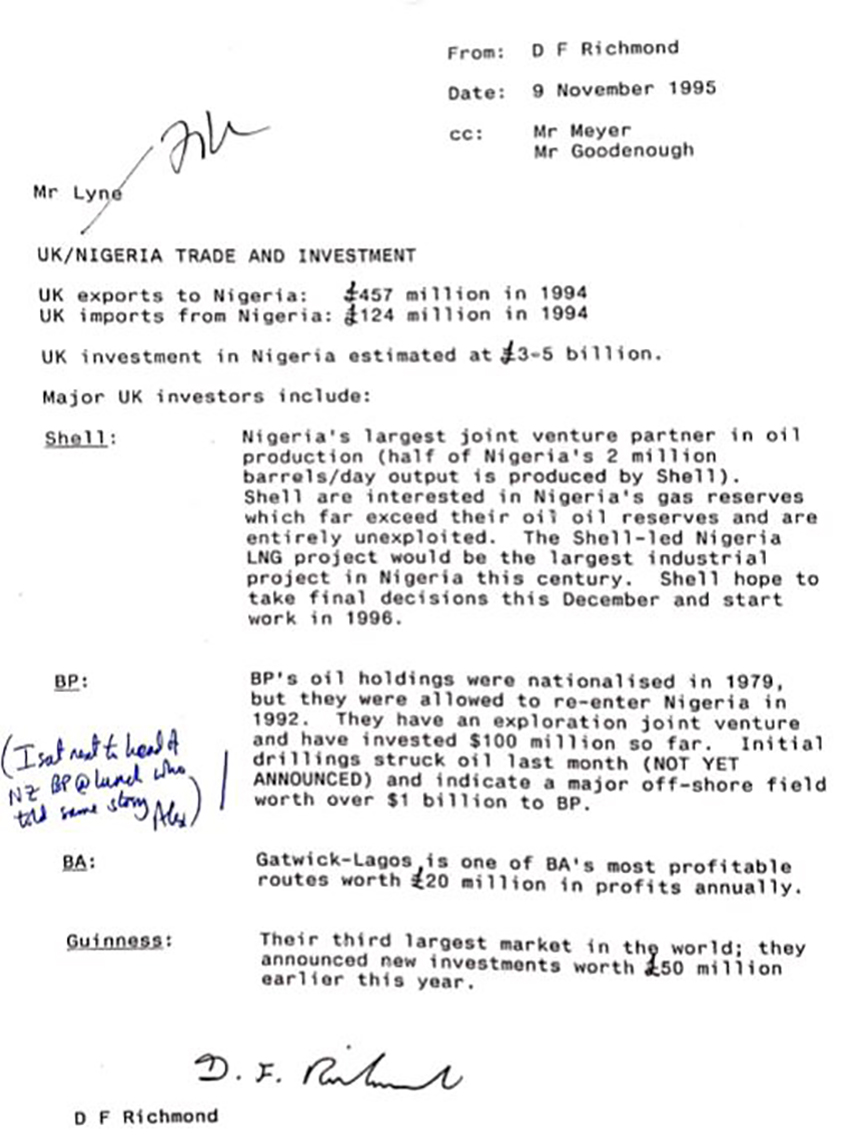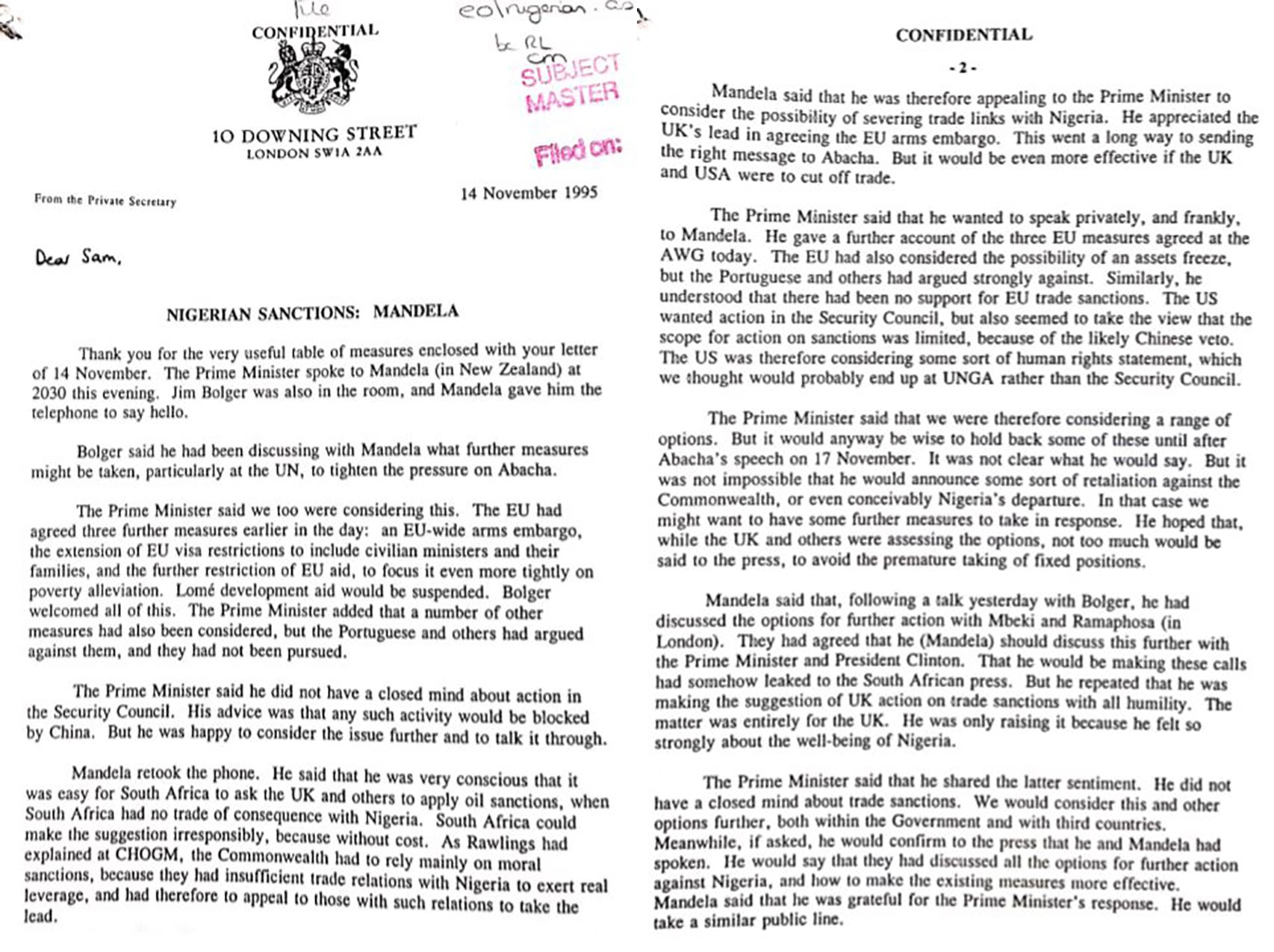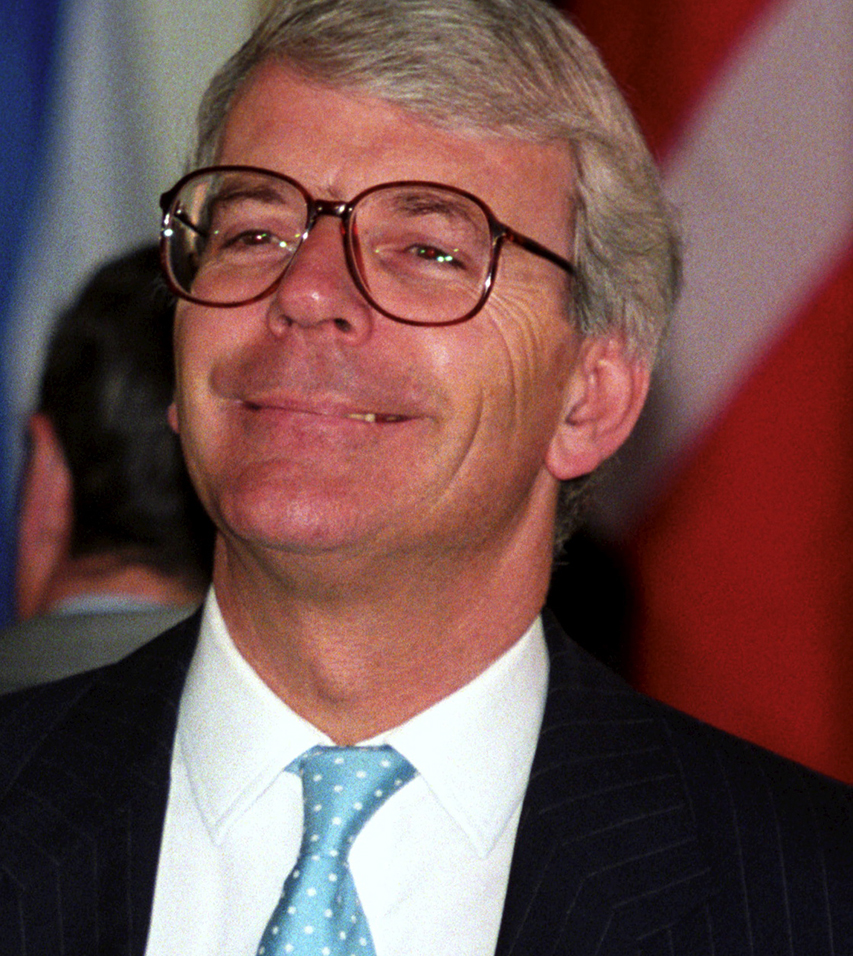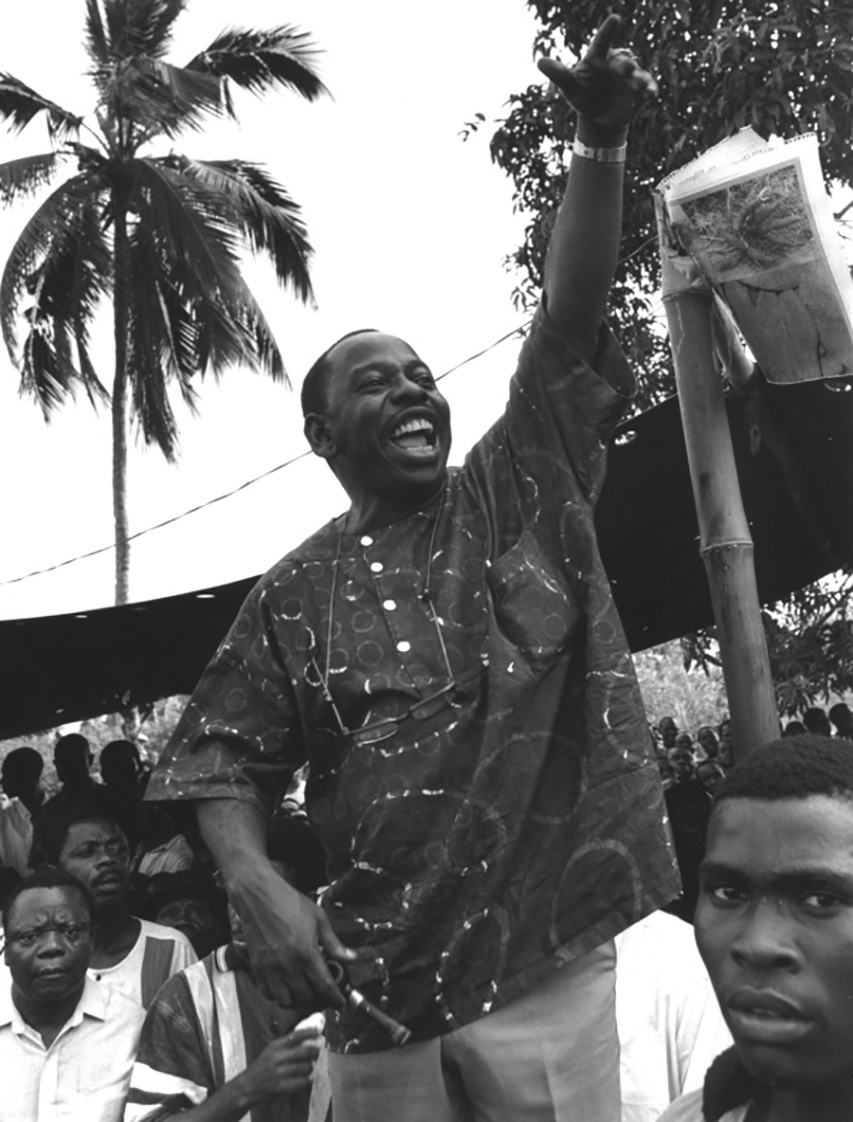All Article Properties:
{
"access_control": false,
"status": "publish",
"objectType": "Article",
"id": "530970",
"signature": "Article:530970",
"url": "https://staging.dailymaverick.co.za/article/2019-12-31-revealed-britain-rebuffed-nelson-mandelas-appeal-for-oil-sanctions-against-nigeria-after-it-executed-environmentalists/",
"shorturl": "https://staging.dailymaverick.co.za/article/530970",
"slug": "revealed-britain-rebuffed-nelson-mandelas-appeal-for-oil-sanctions-against-nigeria-after-it-executed-environmentalists",
"contentType": {
"id": "1",
"name": "Article",
"slug": "article"
},
"views": 0,
"comments": 0,
"preview_limit": null,
"excludedFromGoogleSearchEngine": 0,
"title": "REVEALED: Britain rebuffed Nelson Mandela’s appeal for oil sanctions against Nigeria after it executed environmentalists",
"firstPublished": "2019-12-31 09:01:13",
"lastUpdate": "2019-12-31 09:17:04",
"categories": [
{
"id": "9",
"name": "Business Maverick",
"signature": "Category:9",
"slug": "business-maverick",
"typeId": {
"typeId": "1",
"name": "Daily Maverick",
"slug": "",
"includeInIssue": "0",
"shortened_domain": "",
"stylesheetClass": "",
"domain": "staging.dailymaverick.co.za",
"articleUrlPrefix": "",
"access_groups": "[]",
"locale": "",
"preview_limit": null
},
"parentId": null,
"parent": [],
"image": "",
"cover": "",
"logo": "",
"paid": "0",
"objectType": "Category",
"url": "https://staging.dailymaverick.co.za/category/business-maverick/",
"cssCode": "",
"template": "default",
"tagline": "",
"link_param": null,
"description": "",
"metaDescription": "",
"order": "0",
"pageId": null,
"articlesCount": null,
"allowComments": "1",
"accessType": "freecount",
"status": "1",
"children": [],
"cached": true
},
{
"id": "29",
"name": "South Africa",
"signature": "Category:29",
"slug": "south-africa",
"typeId": {
"typeId": "1",
"name": "Daily Maverick",
"slug": "",
"includeInIssue": "0",
"shortened_domain": "",
"stylesheetClass": "",
"domain": "staging.dailymaverick.co.za",
"articleUrlPrefix": "",
"access_groups": "[]",
"locale": "",
"preview_limit": null
},
"parentId": null,
"parent": [],
"image": "",
"cover": "",
"logo": "",
"paid": "0",
"objectType": "Category",
"url": "https://staging.dailymaverick.co.za/category/south-africa/",
"cssCode": "",
"template": "default",
"tagline": "",
"link_param": null,
"description": "Daily Maverick is an independent online news publication and weekly print newspaper in South Africa.\r\n\r\nIt is known for breaking some of the defining stories of South Africa in the past decade, including the Marikana Massacre, in which the South African Police Service killed 34 miners in August 2012.\r\n\r\nIt also investigated the Gupta Leaks, which won the 2019 Global Shining Light Award.\r\n\r\nThat investigation was credited with exposing the Indian-born Gupta family and former President Jacob Zuma for their role in the systemic political corruption referred to as state capture.\r\n\r\nIn 2018, co-founder and editor-in-chief Branislav ‘Branko’ Brkic was awarded the country’s prestigious Nat Nakasa Award, recognised for initiating the investigative collaboration after receiving the hard drive that included the email tranche.\r\n\r\nIn 2021, co-founder and CEO Styli Charalambous also received the award.\r\n\r\nDaily Maverick covers the latest political and news developments in South Africa with breaking news updates, analysis, opinions and more.",
"metaDescription": "",
"order": "0",
"pageId": null,
"articlesCount": null,
"allowComments": "1",
"accessType": "freecount",
"status": "1",
"children": [],
"cached": true
},
{
"id": "38",
"name": "World",
"signature": "Category:38",
"slug": "world",
"typeId": {
"typeId": "1",
"name": "Daily Maverick",
"slug": "",
"includeInIssue": "0",
"shortened_domain": "",
"stylesheetClass": "",
"domain": "staging.dailymaverick.co.za",
"articleUrlPrefix": "",
"access_groups": "[]",
"locale": "",
"preview_limit": null
},
"parentId": null,
"parent": [],
"image": "",
"cover": "",
"logo": "",
"paid": "0",
"objectType": "Category",
"url": "https://staging.dailymaverick.co.za/category/world/",
"cssCode": "",
"template": "default",
"tagline": "",
"link_param": null,
"description": "",
"metaDescription": "",
"order": "0",
"pageId": null,
"articlesCount": null,
"allowComments": "1",
"accessType": "freecount",
"status": "1",
"children": [],
"cached": true
},
{
"id": "197056",
"name": "Declassified UK",
"signature": "Category:197056",
"slug": "declassified-uk",
"typeId": {
"typeId": "1",
"name": "Daily Maverick",
"slug": "",
"includeInIssue": "0",
"shortened_domain": "",
"stylesheetClass": "",
"domain": "staging.dailymaverick.co.za",
"articleUrlPrefix": "",
"access_groups": "[]",
"locale": "",
"preview_limit": null
},
"parentId": null,
"parent": [],
"image": "",
"cover": "",
"logo": "",
"paid": "0",
"objectType": "Category",
"url": "https://staging.dailymaverick.co.za/category/declassified-uk/",
"cssCode": "",
"template": "default",
"tagline": "",
"link_param": null,
"description": "",
"metaDescription": "",
"order": "0",
"pageId": null,
"articlesCount": null,
"allowComments": "1",
"accessType": "freecount",
"status": "1",
"children": [],
"cached": true
}
],
"content_length": 8065,
"contents": "<span style=\"font-weight: 400;\">The British files, released under the country’s declassification rules, show that UK officials sought “to take some of the heat out of the sanctions debate” that raged after the hanging of Ken Saro-Wiwa and eight other members of Nigeria’s Ogoni community.</span>\r\n\r\n<span style=\"font-weight: 400;\">Saro-Wiwa had led a non-violent protest campaign against pollution by Anglo-Dutch company Shell and other energy firms in the oil-rich Niger Delta. The so-called “Ogoni 9” were executed on 10 November 1995, following a military tribunal that was condemned internationally, especially by South Africa’s President Nelson Mandela.</span>\r\n\r\n<span style=\"font-weight: 400;\">Britain’s prime minister John Major publicly criticised the executions, which he described as “terrible” and claimed he wanted to see “a fundamental and lasting change in the way Nigeria is governed”.</span>\r\n\r\n<span style=\"font-weight: 400;\">However, behind the scenes officials in his government worked to prevent sanctions being imposed on Nigeria’s oil industry and protect Shell’s investments in the country. </span>\r\n\r\n<span style=\"font-weight: 400;\">The files show that a day before the executions, British officials compiled a summary of UK investments in Nigeria, concluding that these were worth up to £5 billion. Shell topped the list of “major UK investors”, producing half of Nigeria’s two million barrels per day output. The company was also said to be “interested in Nigeria’s gas reserves” and was on the verge of “the largest industrial project in Nigeria this century”, one file states.</span>\r\n\r\n<p><img loading=\"lazy\" class=\"size-full wp-image-530964\" src=\"https://www.dailymaverick.co.za/wp-content/uploads/Nigeria-001.jpg\" alt=\"\" width=\"853\" height=\"1145\" /> Britain had up to £5 billion invested in Nigeria’s economy [PREM 19/5366]</p><b>Preventing trade sanctions</b>\r\n\r\n<span style=\"font-weight: 400;\">Immediately after the executions, British officials listed possible international sanctions that could be imposed on Nigeria, ranging from a sporting ban to stopping arms exports. </span>\r\n\r\n<span style=\"font-weight: 400;\">However, under the heading “other options with greater risk to UK interests”, the officials listed a “freeze on financial assets of Nigerian leaders, trade sanctions” and an “oil embargo”.</span>\r\n\r\n<span style=\"font-weight: 400;\">Three days later, on 13 November 1995, Sam Sharpe, the private secretary to foreign secretary Malcolm Rifkind, reiterated UK reservations about an oil embargo. He told the prime minister’s office that “we believe we should hold in reserve for the time being any measures of this kind—which would of course place a disproportionate burden on the UK because of our close ties with Nigeria”.</span>\r\n\r\n<span style=\"font-weight: 400;\">Major’s private secretary, Edward Oakden, similarly warned that Shell’s commercial interests were at risk and that a trade embargo “would hit the UK disproportionately hard”. </span>\r\n\r\n<span style=\"font-weight: 400;\">Mandela phoned the prime minister the following day, appealing to the UK to “cut off trade” with Nigeria in order to “exert real leverage”. In response, Major told Mandela that “we would consider this” and that he “did not have a closed mind about trade sanctions”. </span>\r\n\r\n<p><img loading=\"lazy\" class=\"size-full wp-image-530971\" src=\"https://www.dailymaverick.co.za/wp-content/uploads/Nigeria-002a.jpg\" alt=\"\" width=\"1706\" height=\"1275\" /> A British declassified document captures John Major’s phone call with Nelson Mandela on 14 November 1995 [PREM 19/5366]</p> \r\n\r\nBut the files suggest Major was being disingenuous in his conversation with Mandela.\r\n\r\n<span style=\"font-weight: 400;\">A briefing note prepared for the phone call by Oakden, his private secretary, reiterated senior officials’ reservations about an oil embargo, noting they “would not be enforceable” and that there was “strong UK commercial interest against this: Shell”. It added that the foreign secretary “thinks we should try to hold the line” against sanctions.</span>\r\n\r\n<span style=\"font-weight: 400;\">Oakden’s summary of the phone call disparagingly referred to those “unhelpfully stirring the sanctions pot” and referred again to the “big UK commercial interests involved”. </span>\r\n\r\n<span style=\"font-weight: 400;\">On 18 November 1995 the British government received a letter from Mandela, again urging Major “to take the lead in advocating oil sanctions”. The prime minister was “not keen on the idea of oil sanctions”, another of his private secretaries wrote.</span>\r\n\r\n<span style=\"font-weight: 400;\">Yet when Major replied to Mandela on 28 November, he reiterated that “we have not ruled anything out at this stage”, also suggesting that oil sanctions were unlikely to garner international support. Major did not mention British commercial interests in Nigeria.</span>\r\n\r\n<span style=\"font-weight: 400;\">Over the next few weeks, Whitehall continued to resist international pressure for an oil embargo, particularly from Mandela.</span>\r\n\r\n<p><img loading=\"lazy\" class=\"size-full wp-image-530967\" src=\"https://www.dailymaverick.co.za/wp-content/uploads/Nigeria-004.jpg\" alt=\"\" width=\"853\" height=\"956\" /> British prime minister John Major. [EPA/Stringer]</p><b>Lobbying for Shell</b>\r\n\r\n<span style=\"font-weight: 400;\">Shell has long been accused of complicity in the executions of the Ogoni 9. In 2016 four widows of the murdered activists took the company to </span><span style=\"color: #0000ff;\"><a style=\"color: #0000ff;\" href=\"https://www.business-humanrights.org/en/shell-lawsuit-re-nigeria-kiobel-wiwa?page=1\"><span style=\"font-weight: 400;\">court</span></a></span><span style=\"font-weight: 400;\"> in the Netherlands demanding compensation.</span>\r\n\r\n<span style=\"font-weight: 400;\">The declassified files show that British officials were in “close touch throughout the crisis” with Shell executives and concerned about the company’s “public relations posture”. The UK High Commission in Lagos even swapped notes with the managing director of Shell Nigeria the day after the executions, commenting that the company was “obviously very concerned that Ogoni hot heads could react to targets of opportunity”.</span>\r\n\r\n<span style=\"font-weight: 400;\">Conservative peer Lynda Chalker, the then minister for Africa, also met senior Shell executive John Jennings in person a week after the executions. Jennings was reported by a British official to have lamented that: “Shell had not so far been very successful in getting their message across to the public”. He said he was aware that Greenpeace and the Body Shop were “planning a strategy meeting aimed at bringing about a consumer boycott.”</span>\r\n\r\n<span style=\"font-weight: 400;\">Chalker responded by suggesting that the company should “broadcast the facts about their wider contribution in Nigeria” and assured him that the UK was “resisting pressure coming from the South Africans and some European partners for further economic sanctions.” </span>\r\n\r\n<span style=\"font-weight: 400;\">She also asked Jennings if the British government could share with Mandela a letter written to prime minister Major by Shell, expounding on the company’s claims about its positive impacts in Nigeria. A British official noted, “It should be passed to him [Mandela] but not specifically by us. We don’t want to appear to be endorsing Shell’s position”.</span>\r\n\r\n<p><img loading=\"lazy\" class=\"size-full wp-image-530968\" src=\"https://www.dailymaverick.co.za/wp-content/uploads/Nigeria-005.jpg\" alt=\"\" width=\"853\" height=\"1301\" /> A Nigerian woman dries cassava food with flames from a Shell flow station in the Niger delta behind her. [EPA/Stringer]</p> \r\n\r\n<span style=\"font-weight: 400;\">Shell’s letter to Major insisted that “the emotional charges of environmental devastation that have been laid at the door of Shell in Nigeria ... are false and misleading.” It also blamed most of the oil leaks in the Ogoni area on “sabotage” and stated that Shell was spending $120m on environmental, health and education projects in Nigeria that year. </span>\r\n\r\n<span style=\"font-weight: 400;\">Downing Street appeared impressed by Shell’s argument, with Edward Oakden saying he was “struck by the size of Shell Nigeria’s annual expenditure on environmental projects”. </span>\r\n\r\n<span style=\"font-weight: 400;\">Oakden then considered whether the UK could argue against sanctions on Nigerian oil by deploying the same argument used by the British government to oppose a trade boycott of South Africa’s apartheid government: that such an embargo would “hit hardest the poor people least able to cope.” </span>\r\n\r\n<p><img loading=\"lazy\" class=\"size-full wp-image-530969\" src=\"https://www.dailymaverick.co.za/wp-content/uploads/Nigeria-006.jpg\" alt=\"\" width=\"853\" height=\"1122\" /> Ken Saro-Wiwa speaking at the Ogoni Day demonstration in 1993 [Tim Lambon/Greenpeace]</p><b>‘Sanctimonious’ Swedes</b>\r\n\r\n<span style=\"font-weight: 400;\">Mandela’s call for an oil embargo was echoed by Sweden’s social democratic government, which urged the European Union to go further than simply introducing visa restrictions and an arms embargo on Nigeria. Swedish diplomats said they wanted “a package of sanctions which would make a real impact on the Nigerian regime, not just play to the domestic gallery.” </span>\r\n\r\n<span style=\"font-weight: 400;\">British diplomats were furious with this demand. One wrote: “Bloody cheek, Swedish – Nigerian trade = 0”. Another claimed it was “The Swedes at their sanctimonious worst. They used to behave like this over South Africa.” </span>\r\n\r\n<span style=\"font-weight: 400;\">Another disgruntled British official remarked: “Unbelievable. On second thoughts, all too believable. I constantly underestimate the Nordic capacity to posture, while others bear the practical consequences.”</span>\r\n\r\n<span style=\"font-weight: 400;\">Nigeria’s military ruler General Abacha died in June 1998 before the </span><span style=\"color: #0000ff;\"><a style=\"color: #0000ff;\" href=\"https://www.irishtimes.com/news/nigeria-is-given-another-year-before-imposition-of-sanctions-1.119354\"><span style=\"font-weight: 400;\">international community</span></a></span><span style=\"font-weight: 400;\"> could reach agreement on oil sanctions, with the </span><a href=\"https://www.politico.eu/article/eu-to-consider-new-sanctions-on-nigeria/\"><span style=\"font-weight: 400;\">EU</span></a><span style=\"font-weight: 400;\"> debating the matter again just days before he passed away.</span><span style=\"font-size: 1rem;\"> </span><span style=\"text-decoration: underline;\"><strong>DM</strong></span>\r\n\r\n<i><span style=\"font-weight: 400;\">Phil Miller is a staff reporter, and Mark Curtis is editor, of Declassified UK (@DeclassifiedUK)</span></i>",
"teaser": "REVEALED: Britain rebuffed Nelson Mandela’s appeal for oil sanctions against Nigeria after it executed environmentalists",
"externalUrl": "",
"sponsor": null,
"authors": [
{
"id": "40659",
"name": "Phil Miller and Mark Curtis",
"image": "",
"url": "https://staging.dailymaverick.co.za/author/phil-miller-and-mark-curtis/",
"editorialName": "phil-miller-and-mark-curtis",
"department": "",
"name_latin": ""
}
],
"description": "",
"keywords": [],
"short_summary": null,
"source": null,
"related": [],
"options": [],
"attachments": [
{
"id": "47761",
"name": "Ken Saro-Wiwa speaking at the Ogoni Day demonstration in 1993 [Tim Lambon/Greenpeace]",
"description": "<span style=\"font-weight: 400;\">The British files, released under the country’s declassification rules, show that UK officials sought “to take some of the heat out of the sanctions debate” that raged after the hanging of Ken Saro-Wiwa and eight other members of Nigeria’s Ogoni community.</span>\r\n\r\n<span style=\"font-weight: 400;\">Saro-Wiwa had led a non-violent protest campaign against pollution by Anglo-Dutch company Shell and other energy firms in the oil-rich Niger Delta. The so-called “Ogoni 9” were executed on 10 November 1995, following a military tribunal that was condemned internationally, especially by South Africa’s President Nelson Mandela.</span>\r\n\r\n<span style=\"font-weight: 400;\">Britain’s prime minister John Major publicly criticised the executions, which he described as “terrible” and claimed he wanted to see “a fundamental and lasting change in the way Nigeria is governed”.</span>\r\n\r\n<span style=\"font-weight: 400;\">However, behind the scenes officials in his government worked to prevent sanctions being imposed on Nigeria’s oil industry and protect Shell’s investments in the country. </span>\r\n\r\n<span style=\"font-weight: 400;\">The files show that a day before the executions, British officials compiled a summary of UK investments in Nigeria, concluding that these were worth up to £5 billion. Shell topped the list of “major UK investors”, producing half of Nigeria’s two million barrels per day output. The company was also said to be “interested in Nigeria’s gas reserves” and was on the verge of “the largest industrial project in Nigeria this century”, one file states.</span>\r\n\r\n[caption id=\"attachment_530964\" align=\"alignleft\" width=\"853\"]<img class=\"size-full wp-image-530964\" src=\"https://www.dailymaverick.co.za/wp-content/uploads/Nigeria-001.jpg\" alt=\"\" width=\"853\" height=\"1145\" /> Britain had up to £5 billion invested in Nigeria’s economy [PREM 19/5366][/caption]<b>Preventing trade sanctions</b>\r\n\r\n<span style=\"font-weight: 400;\">Immediately after the executions, British officials listed possible international sanctions that could be imposed on Nigeria, ranging from a sporting ban to stopping arms exports. </span>\r\n\r\n<span style=\"font-weight: 400;\">However, under the heading “other options with greater risk to UK interests”, the officials listed a “freeze on financial assets of Nigerian leaders, trade sanctions” and an “oil embargo”.</span>\r\n\r\n<span style=\"font-weight: 400;\">Three days later, on 13 November 1995, Sam Sharpe, the private secretary to foreign secretary Malcolm Rifkind, reiterated UK reservations about an oil embargo. He told the prime minister’s office that “we believe we should hold in reserve for the time being any measures of this kind—which would of course place a disproportionate burden on the UK because of our close ties with Nigeria”.</span>\r\n\r\n<span style=\"font-weight: 400;\">Major’s private secretary, Edward Oakden, similarly warned that Shell’s commercial interests were at risk and that a trade embargo “would hit the UK disproportionately hard”. </span>\r\n\r\n<span style=\"font-weight: 400;\">Mandela phoned the prime minister the following day, appealing to the UK to “cut off trade” with Nigeria in order to “exert real leverage”. In response, Major told Mandela that “we would consider this” and that he “did not have a closed mind about trade sanctions”. </span>\r\n\r\n[caption id=\"attachment_530971\" align=\"alignleft\" width=\"1706\"]<img class=\"size-full wp-image-530971\" src=\"https://www.dailymaverick.co.za/wp-content/uploads/Nigeria-002a.jpg\" alt=\"\" width=\"1706\" height=\"1275\" /> A British declassified document captures John Major’s phone call with Nelson Mandela on 14 November 1995 [PREM 19/5366][/caption] \r\n\r\nBut the files suggest Major was being disingenuous in his conversation with Mandela.\r\n\r\n<span style=\"font-weight: 400;\">A briefing note prepared for the phone call by Oakden, his private secretary, reiterated senior officials’ reservations about an oil embargo, noting they “would not be enforceable” and that there was “strong UK commercial interest against this: Shell”. It added that the foreign secretary “thinks we should try to hold the line” against sanctions.</span>\r\n\r\n<span style=\"font-weight: 400;\">Oakden’s summary of the phone call disparagingly referred to those “unhelpfully stirring the sanctions pot” and referred again to the “big UK commercial interests involved”. </span>\r\n\r\n<span style=\"font-weight: 400;\">On 18 November 1995 the British government received a letter from Mandela, again urging Major “to take the lead in advocating oil sanctions”. The prime minister was “not keen on the idea of oil sanctions”, another of his private secretaries wrote.</span>\r\n\r\n<span style=\"font-weight: 400;\">Yet when Major replied to Mandela on 28 November, he reiterated that “we have not ruled anything out at this stage”, also suggesting that oil sanctions were unlikely to garner international support. Major did not mention British commercial interests in Nigeria.</span>\r\n\r\n<span style=\"font-weight: 400;\">Over the next few weeks, Whitehall continued to resist international pressure for an oil embargo, particularly from Mandela.</span>\r\n\r\n[caption id=\"attachment_530967\" align=\"alignleft\" width=\"853\"]<img class=\"size-full wp-image-530967\" src=\"https://www.dailymaverick.co.za/wp-content/uploads/Nigeria-004.jpg\" alt=\"\" width=\"853\" height=\"956\" /> British prime minister John Major. [EPA/Stringer][/caption]<b>Lobbying for Shell</b>\r\n\r\n<span style=\"font-weight: 400;\">Shell has long been accused of complicity in the executions of the Ogoni 9. In 2016 four widows of the murdered activists took the company to </span><span style=\"color: #0000ff;\"><a style=\"color: #0000ff;\" href=\"https://www.business-humanrights.org/en/shell-lawsuit-re-nigeria-kiobel-wiwa?page=1\"><span style=\"font-weight: 400;\">court</span></a></span><span style=\"font-weight: 400;\"> in the Netherlands demanding compensation.</span>\r\n\r\n<span style=\"font-weight: 400;\">The declassified files show that British officials were in “close touch throughout the crisis” with Shell executives and concerned about the company’s “public relations posture”. The UK High Commission in Lagos even swapped notes with the managing director of Shell Nigeria the day after the executions, commenting that the company was “obviously very concerned that Ogoni hot heads could react to targets of opportunity”.</span>\r\n\r\n<span style=\"font-weight: 400;\">Conservative peer Lynda Chalker, the then minister for Africa, also met senior Shell executive John Jennings in person a week after the executions. Jennings was reported by a British official to have lamented that: “Shell had not so far been very successful in getting their message across to the public”. He said he was aware that Greenpeace and the Body Shop were “planning a strategy meeting aimed at bringing about a consumer boycott.”</span>\r\n\r\n<span style=\"font-weight: 400;\">Chalker responded by suggesting that the company should “broadcast the facts about their wider contribution in Nigeria” and assured him that the UK was “resisting pressure coming from the South Africans and some European partners for further economic sanctions.” </span>\r\n\r\n<span style=\"font-weight: 400;\">She also asked Jennings if the British government could share with Mandela a letter written to prime minister Major by Shell, expounding on the company’s claims about its positive impacts in Nigeria. A British official noted, “It should be passed to him [Mandela] but not specifically by us. We don’t want to appear to be endorsing Shell’s position”.</span>\r\n\r\n[caption id=\"attachment_530968\" align=\"alignleft\" width=\"853\"]<img class=\"size-full wp-image-530968\" src=\"https://www.dailymaverick.co.za/wp-content/uploads/Nigeria-005.jpg\" alt=\"\" width=\"853\" height=\"1301\" /> A Nigerian woman dries cassava food with flames from a Shell flow station in the Niger delta behind her. [EPA/Stringer][/caption] \r\n\r\n<span style=\"font-weight: 400;\">Shell’s letter to Major insisted that “the emotional charges of environmental devastation that have been laid at the door of Shell in Nigeria ... are false and misleading.” It also blamed most of the oil leaks in the Ogoni area on “sabotage” and stated that Shell was spending $120m on environmental, health and education projects in Nigeria that year. </span>\r\n\r\n<span style=\"font-weight: 400;\">Downing Street appeared impressed by Shell’s argument, with Edward Oakden saying he was “struck by the size of Shell Nigeria’s annual expenditure on environmental projects”. </span>\r\n\r\n<span style=\"font-weight: 400;\">Oakden then considered whether the UK could argue against sanctions on Nigerian oil by deploying the same argument used by the British government to oppose a trade boycott of South Africa’s apartheid government: that such an embargo would “hit hardest the poor people least able to cope.” </span>\r\n\r\n[caption id=\"attachment_530969\" align=\"alignleft\" width=\"853\"]<img class=\"size-full wp-image-530969\" src=\"https://www.dailymaverick.co.za/wp-content/uploads/Nigeria-006.jpg\" alt=\"\" width=\"853\" height=\"1122\" /> Ken Saro-Wiwa speaking at the Ogoni Day demonstration in 1993 [Tim Lambon/Greenpeace][/caption]<b>‘Sanctimonious’ Swedes</b>\r\n\r\n<span style=\"font-weight: 400;\">Mandela’s call for an oil embargo was echoed by Sweden’s social democratic government, which urged the European Union to go further than simply introducing visa restrictions and an arms embargo on Nigeria. Swedish diplomats said they wanted “a package of sanctions which would make a real impact on the Nigerian regime, not just play to the domestic gallery.” </span>\r\n\r\n<span style=\"font-weight: 400;\">British diplomats were furious with this demand. One wrote: “Bloody cheek, Swedish – Nigerian trade = 0”. Another claimed it was “The Swedes at their sanctimonious worst. They used to behave like this over South Africa.” </span>\r\n\r\n<span style=\"font-weight: 400;\">Another disgruntled British official remarked: “Unbelievable. On second thoughts, all too believable. I constantly underestimate the Nordic capacity to posture, while others bear the practical consequences.”</span>\r\n\r\n<span style=\"font-weight: 400;\">Nigeria’s military ruler General Abacha died in June 1998 before the </span><span style=\"color: #0000ff;\"><a style=\"color: #0000ff;\" href=\"https://www.irishtimes.com/news/nigeria-is-given-another-year-before-imposition-of-sanctions-1.119354\"><span style=\"font-weight: 400;\">international community</span></a></span><span style=\"font-weight: 400;\"> could reach agreement on oil sanctions, with the </span><a href=\"https://www.politico.eu/article/eu-to-consider-new-sanctions-on-nigeria/\"><span style=\"font-weight: 400;\">EU</span></a><span style=\"font-weight: 400;\"> debating the matter again just days before he passed away.</span><span style=\"font-size: 1rem;\"> </span><span style=\"text-decoration: underline;\"><strong>DM</strong></span>\r\n\r\n<i><span style=\"font-weight: 400;\">Phil Miller is a staff reporter, and Mark Curtis is editor, of Declassified UK (@DeclassifiedUK)</span></i>",
"focal": "50% 50%",
"width": 0,
"height": 0,
"url": "https://dmcdn.whitebeard.net/dailymaverick/wp-content/uploads/HEADER.jpg",
"transforms": [
{
"x": "200",
"y": "100",
"url": "https://dmcdn.whitebeard.net/i/lZ9FdDtgdvayqUCGxLzu1UZb93A=/200x100/smart/filters:strip_exif()/file/dailymaverick/wp-content/uploads/HEADER.jpg"
},
{
"x": "450",
"y": "0",
"url": "https://dmcdn.whitebeard.net/i/stDYQKjnTQigT9b27bk9t_ugw2g=/450x0/smart/file/dailymaverick/wp-content/uploads/HEADER.jpg"
},
{
"x": "800",
"y": "0",
"url": "https://dmcdn.whitebeard.net/i/lQJDEMgFEZNG-9frBjAatXjpbwc=/800x0/smart/filters:strip_exif()/file/dailymaverick/wp-content/uploads/HEADER.jpg"
},
{
"x": "1200",
"y": "0",
"url": "https://dmcdn.whitebeard.net/i/9waKcJmcdFhw2C5WX1fTKlr7PoA=/1200x0/smart/filters:strip_exif()/file/dailymaverick/wp-content/uploads/HEADER.jpg"
},
{
"x": "1600",
"y": "0",
"url": "https://dmcdn.whitebeard.net/i/SQTKyDPaBeREFTXxdxMBOe_LUqU=/1600x0/smart/filters:strip_exif()/file/dailymaverick/wp-content/uploads/HEADER.jpg"
}
],
"url_thumbnail": "https://dmcdn.whitebeard.net/i/lZ9FdDtgdvayqUCGxLzu1UZb93A=/200x100/smart/filters:strip_exif()/file/dailymaverick/wp-content/uploads/HEADER.jpg",
"url_medium": "https://dmcdn.whitebeard.net/i/stDYQKjnTQigT9b27bk9t_ugw2g=/450x0/smart/file/dailymaverick/wp-content/uploads/HEADER.jpg",
"url_large": "https://dmcdn.whitebeard.net/i/lQJDEMgFEZNG-9frBjAatXjpbwc=/800x0/smart/filters:strip_exif()/file/dailymaverick/wp-content/uploads/HEADER.jpg",
"url_xl": "https://dmcdn.whitebeard.net/i/9waKcJmcdFhw2C5WX1fTKlr7PoA=/1200x0/smart/filters:strip_exif()/file/dailymaverick/wp-content/uploads/HEADER.jpg",
"url_xxl": "https://dmcdn.whitebeard.net/i/SQTKyDPaBeREFTXxdxMBOe_LUqU=/1600x0/smart/filters:strip_exif()/file/dailymaverick/wp-content/uploads/HEADER.jpg",
"type": "image"
}
],
"summary": "The British government rejected Nelson Mandela’s personal appeal to impose oil sanctions on Nigeria after its military regime executed nine environmental activists in 1995 as it wanted to protect oil company Shell’s commercial interests, newly declassified files reveal.",
"template_type": null,
"dm_custom_section_label": null,
"elements": [],
"seo": {
"search_title": "REVEALED: Britain rebuffed Nelson Mandela’s appeal for oil sanctions against Nigeria after it executed environmentalists",
"search_description": "<span style=\"font-weight: 400;\">The British files, released under the country’s declassification rules, show that UK officials sought “to take some of the heat out of the sanctions debate” that raged ",
"social_title": "REVEALED: Britain rebuffed Nelson Mandela’s appeal for oil sanctions against Nigeria after it executed environmentalists",
"social_description": "<span style=\"font-weight: 400;\">The British files, released under the country’s declassification rules, show that UK officials sought “to take some of the heat out of the sanctions debate” that raged ",
"social_image": ""
},
"cached": true,
"access_allowed": true
}  Britain had up to £5 billion invested in Nigeria’s economy [PREM 19/5366]
Britain had up to £5 billion invested in Nigeria’s economy [PREM 19/5366] A British declassified document captures John Major’s phone call with Nelson Mandela on 14 November 1995 [PREM 19/5366]
A British declassified document captures John Major’s phone call with Nelson Mandela on 14 November 1995 [PREM 19/5366] British prime minister John Major. [EPA/Stringer]
British prime minister John Major. [EPA/Stringer] A Nigerian woman dries cassava food with flames from a Shell flow station in the Niger delta behind her. [EPA/Stringer]
A Nigerian woman dries cassava food with flames from a Shell flow station in the Niger delta behind her. [EPA/Stringer] Ken Saro-Wiwa speaking at the Ogoni Day demonstration in 1993 [Tim Lambon/Greenpeace]
Ken Saro-Wiwa speaking at the Ogoni Day demonstration in 1993 [Tim Lambon/Greenpeace]



